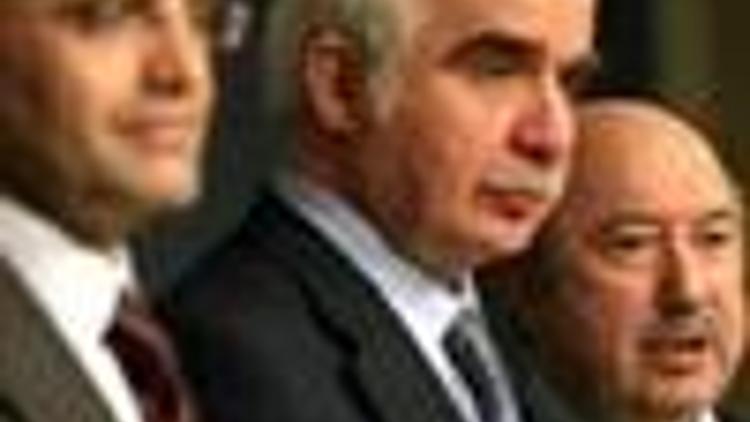Turkish government plans 83 major steps to tackle global crisis
Güncelleme Tarihi:

The details of the new economic package announced by Turkish Prime Minister Tayyip Erdogan had started to emerge. The media reports say government plans to take 83 important steps against the impacts of the global credit crisis.
Milliyet daily said the package has been prepared in line with the consultations held with the business associations. The package is expected to be disclosed next week when Erdogan returns from his
The package has been divided into six categories: The Management of the Crisis, Measures to Restore Confidence, Cash Flow Action, Primary Steps for Markets, Measures to Protect the Social Structure, and Turning the Crisis into
The economy officials plan to use both internal and external resources to finance the package, the reports said.
FINANCING DETAILS
Around $10-billion is expected to come from the expected precautionary agreement with the International Monetary Fund, while 1 billion euro loan is expected to be taken from European Investment Bank to support the small and medium enterprises.
The government also plans to increase the funds gained from World Bank, European Construction and Development Bank, the EU, United Nation and German Development Bank.
Another source for the program would be the public land sales under a new legislation. The officials also rely on the expat funds that are expected under the new law which cut the tax rates and pledged no probe into the source of the money.
Also new incentives are planned to attract the cash-rich Gulf investors.
PLANNED STEPS
The government plans various steps to encourage investments, to attract foreign investors including accelerations of privatization, to reduce the credit costs in the overall economy and to restore confidence in the markets.
Here are some of the major points of the 83 planned measures:
1 - A "Global Crisis Committee" had been established
2 - Enhanced coordination between regulatory and supervisory bodies
3 - Establishment of a joint platform to resolve the problems between banks and manufacturers
4 - Sealing a flexible loan deal with IMF with taking the ongoing crisis into consideration
5 - Unlimited guarantee on bank deposits. The mandate was handed to the government who is expected to discuss the issue in the coming cabinet meeting.
6 - Revision of spending decisions to protect the budget discipline and to lift the tax on the insurance of bank transactions.
7 - An upper limit to interest rates after unlimited guarantee on deposits
8 - Short-selling ban in the stocks
9 - Avoiding populist policies in the local elections
10 - Establishing a fund to provide credits for the manufacturers
11 - Government support on credit costs of SMEs
12 - Reduction in reserve requirements
13 - Reducing the withdraw tax on deposit interests to 5 percent from 15 percent
14 - Financing the current account deficit and the credits of manufacturers with using the IMF loans.
15 - Parallel rate cuts with the global central banks
16 - Allowing small industrialists to use some parts of the unemployment fund
17 - Direct lending from central bank to companies
18 - Bringing the banks' funds in abroad back home
19 - Government guarantee on the long term project financing loans until after the crisis ends
20 - Taking measures against the practices that are unacceptable for the IMF before cutting the deal
21 - Encouraging mergers and acquisitions
22 - Retreating from the recent increase in gas and electric prices
23 - Accelerating the privatization tenders
24 - Implementation of the "industry strategy"
25 - No increases on tax rates
26 - Tax incentives for public companies
27 - Establishment of an investment fund with Gulf partners or new investment instruments to attract investors from Gulf countries
28 - Preparation of an investment strategy for Gulf companies

